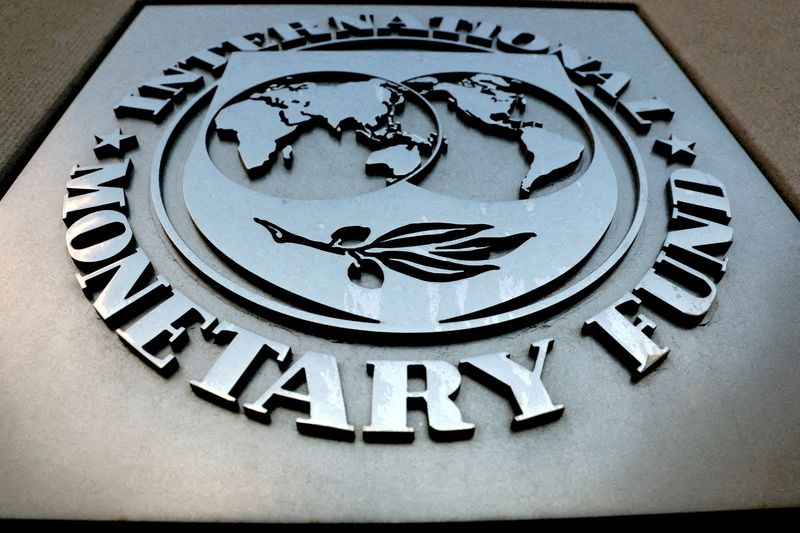
©Reuters. FILE PHOTO: The logo of the International Monetary Fund (IMF) is seen outside its headquarters building in Washington, U.S., September 4, 2018. REUTERS/Yuri Gripas//File Photo
BEIJING (Reuters) – With a comprehensive package of market-friendly reforms, China could grow much faster than in a status quo scenario, Kristalina Georgieva, managing director of the International Monetary Fund (IMF), said on Sunday.
“This further growth would be equivalent to a 20% expansion of the real economy over the next 15 years, in today’s terms, which would be equivalent to adding $3.5 trillion to the Chinese economy,” Georgieva said in a speech at China Development Forum, calling for measures to improve the sustainability of the real estate sector, reduce debt risks and focus more on domestic consumption.
Decisive steps to reduce the stock of unfinished housing and give more room for market-based corrections in the real estate sector could speed up the resolution of current real estate problems and boost consumer and investor confidence, he said.
Premier Li Qiang, in his latest official speech on the real estate sector, said on Friday that China will further optimize real estate policy. Earlier this month, Li announced an annual growth target of about 5% this year, a goal some analysts called ambitious.
China also needs to rely more on domestic consumption, Georgieva said. It can do this by raising incomes, strengthening the spending power of families and expanding the social security system, including the pension system, in a “fiscally responsible manner”.
China should establish a strong AI regulatory framework, Georgieva said, noting that China leads emerging economies in terms of AI readiness.
In January, China’s Ministry of Industry released draft guidelines for standardizing the AI industry, aiming to have national and industry standards in place by 2026.
China has “enormous potential in advancing the green economy,” Georgieva said. Although China is a leader in the deployment of renewable energy, to decarbonize more efficiently it needs to sell a greater share of electricity at market prices. She also recommended that China expand its emissions trading system (ETS) to the industrial sector.
The ETS, which currently covers the energy sector, is expected to include new sectors such as cement and aluminum by the end of 2025.